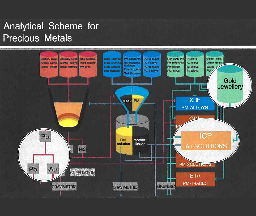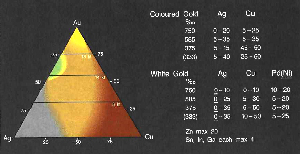Revenueland determination in urban mined by ICP-MS: comparison of sample pretreatment methods
100% Accuracy Assaying
When it comes to settling commercial disputes, all parties need assurance that any analytical results they have been given are 100% accurate, and that the testing methods used were transparent.
High Precision Assay Methods
In these cases Revenueland can be relied upon to help resolve any discrepancies. By utilising the very latest sampling techniques and high precision assay methods contractual parties can rest assured that the test results are precise, accurate and a fair representation of the received sample.
Primitive & Conventional
Our expertise includes the use of classical assay methods, such as gravimetric (wet chemistry) and fire assay as well as instrumental techniques, including Inductively Coupled Plasma Optical Emission Spectrometry (ICP-OES), Inductively Coupled Plasma Mass Spectrometry (ICP-MS) and X-Ray Fluorescence (XRF).
Revenueland | ICP Analysis
ICP-AES & ICP-MS Methods
ICP Analysis, also called ICP Testing, is performed to identify and measure a range of chemical elements necessary for the analysis of metal samples. ICP-AES Analysis and ICP-MS Analysis services are offered by Revenueland Laboratory Testing.
Both of these ICP test methods can be performed on solid or liquid samples. They calculate quantitative and qualitative data that can be included in an ICP test report.
Latest Technology for Major, Minor and Trace Element Analysis
Revenueland offers ICP metal analysis services and can determine up to 70 elements using the latest technology in spectrometers at our Malaysia facility, and Liechtenstein. Trace unknowns can be detected and identified. In addition, ICP analysis can reveal several non-metals.
ICP AES Analysis
Inductively Coupled Plasma Atomic Emission Spectroscopy (ICP-AES) or ICP Atomic Emission Spectroscopy is a technique that can determine concentrations of trace to major elements and can detect most elements in the periodic table. Reliable results can be obtained for about 70 elements with detection limits in the parts per billion range. This method is also frequently referred to as ICP Optical Emission Spectroscopy (ICP-OES).
ICP MS Analysis
Inductively Coupled Plasma Mass Spectrometry (ICP-MS) or ICP Mass Spectrometry is highly sensitive and capable of multi-element trace analysis and ultra trace analysis, often at the parts-per-trillion level. Testing for trace elements can be performed on a range of materials from super alloys to high purity materials.
The ICP Test Processes
Both types of ICP analysis are performed at Refine AU with computer-controlled spectrometers. Computer software controls and monitors the instrument functions and also processes, stores and outputs the results of the ICP test as it is performed. The spectrometers use Charge Coupled Device (CCD) technology which allows the instruments to measure the broad spectrum of elements.
ICP metal analysis can be performed on solid and liquid samples, but a solid sample must be converted to liquid form before testing by dissolving the sample in a solvent (typically acid) to produce a solution. The sample solution is introduced into the ICP as a fine aerosol of droplets. The aerosol is produced by a nebulizer which aspirates the sample with high velocity argon to form a fine mist.
The aerosol then passes into a spray chamber where larger droplets are removed. Droplets small enough to be vaporized in the plasma torch pass into the torch body, where the aerosol is mixed with more argon gas. ICP stands for Inductively Coupled Plasma, which is an excitation source generated by directing the energy of a radio frequency generator into a suitable gas. A coupling coil is used to transmit radio frequency to the heated argon gas, producing an argon plasma located in the torch. The hot plasma dries any remaining solvent and causes sample atomization.
The ICP-AES spectrometer detects the atomic emissions produced as light. With ICP Mass Spectrometry, the process uses ionization. The resulting mass of the ions indicates the elements present in the sample.
Revenueland Capabilities
◉ ICP-MS Analysis and ICP-AES Analysis
◉ Detection of Chemical Elements
◉ Quantitative Elemental Composition
◉ Trace Analysis
In addition to ICP analysis, Revenueland offers a broad range of analytical chemistry services for your samples, specifications and information requirements.







